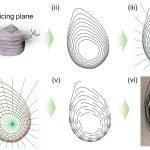Molnupiravir doesn’t reduce COVID-19 hospitalizations in high-risk vaccinated people
Molnupiravir did not reduce hospitalisations or deaths among higher risk, vaccinated adults with COVID-19 in the community.
Can eating potatoes increase your blood pressure?
In a recent study from Imperial College London, scientists found that cooking methods play an important role in the association between potato eating and...
Half of US adults say they had COVID-19, but only a fraction were officially...
In a study from Northeastern and elsewhere, scientists found half of U.S. adults report being sickened with COVID-19 at some point during the pandemic,...
How to monitor blood pressure at home correctly
Knowing your blood pressure is a basic part of good health. But monitoring it at home can get complicated.
“It sounds easy – you buy...
Smoking and vaping are bad for teeth and gums
In a study from the U.S. National Institute of Dental and Craniofacial Research, scientists found using tobacco in any form—including the increasingly popular practice...
Scientists find why obesity can increase your cancer risk
Obesity is now a global epidemic, and it is increasing people's risk for cancer.
The National Cancer Institute lists more than a dozen cancers that...
This drug combo may prevent heart disease, stroke
In a recent study from the Tehran University of Medical Sciences, scientists found a cheap drug combo of four common drugs could help prevent...
Widely used heartburn drugs may help control blood sugar in diabetes
In a recent study from the University of Maryland, scientists found antacids improved blood sugar control in people with diabetes.
An antacid is a drug...
Kirigami technique could aid breast reconstruction, shows study
For many breast cancer patients, the road to recovery may present hidden complications related to breast reconstruction following a mastectomy.
The insertion of foreign materials...
How common are severe side effects from COVID vaccines? And how are they detected?
Former federal MP Dr Kerryn Phelps has talked this week about the medical problems she and her wife had after their COVID-19 vaccinations around...










